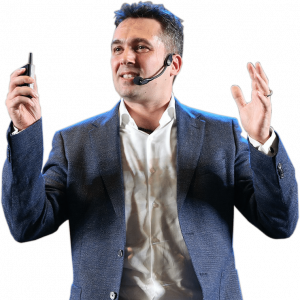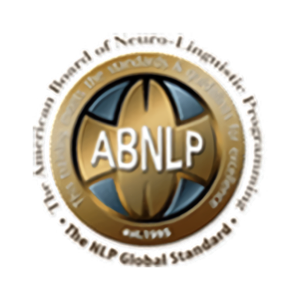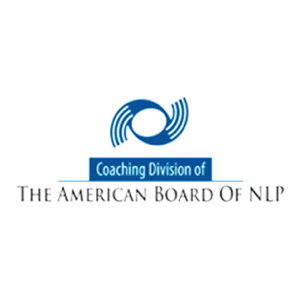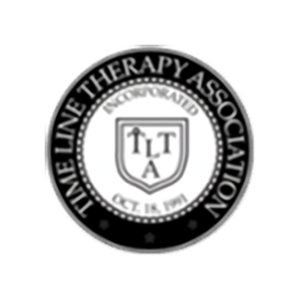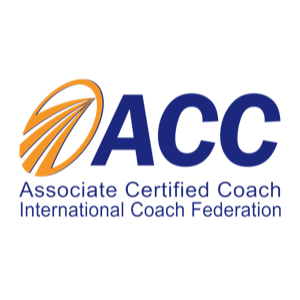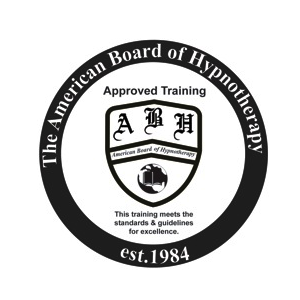Although there is the option to self-learn NLP, it is often also taught by coaches. This article will provide a detailed overview of NLP coaching and look at some of the techniques an NLP coach may apply to their subjects.
What Is NLP Coaching Used for, and What Does It Do?
NLP coaches use the techniques and theories of NLP to help individuals and organizations improve communication, achieve goals, and overcome challenges.
NLP practitioners often use various techniques, such as reframing, anchoring, and language patterns, to help clients change their behavior, thoughts, and emotions in ways that align with their goals.
For example, an NLP coach might use reframing to help a client view a difficult situation in a more positive light or use anchoring to help a client associate a positive emotion with a specific behavior.
NLP coaching can be used to address a wide range of issues, including improving communication skills, increasing confidence and self-esteem, setting and achieving goals, managing stress and emotions, and overcoming challenges or phobias.
It is often used with other coaching or therapy approaches to help clients achieve lasting changes in their lives.
What Makes NLP in Coaching So Powerful?
NLP coaching is powerful for a whole host of reasons. For starters, it focuses on language and communication, which can significantly impact thoughts, feelings, and behaviors.
Secondly, NLP coaching is also quite flexible and adaptable. This means that it can be applied to a wide range of challenges and situations. Additionally, because it Is goal-oriented, clients can set clear, measurable goals and develop strategies to achieve them.
Finally, NLP is based on the principles of rapport and rapport building, which is essential for effective communication and change. Overall, NLP coaching is a powerful tool that can help individuals and organizations achieve success in a variety of fields.
NLP Coaching vs. Life Coaching
NLP coaching and life coaching are both approaches that aim to help individuals improve their lives and achieve their goals.
However, NLP coaching tends to focus on language and communication, using techniques such as reframing and anchoring to address specific challenges or issues. On the other hand, life coaching takes a more holistic approach and helps clients address a wide range of personal and professional goals using various techniques.
5 Popular Techniques for NLP Coaching
There is a vast variety of different NLP techniques practiced out there.
In fact, there are so many that you can even find books written on the subject. However, fortunately, many of the most effective and popular ones are relatively straightforward.
The following 5 are fairly common, and you may come across them being taught by NLP coaches.
1. Reframing
Reframing is a technique used in NLP that involves changing the way a person understands or interprets a particular event, experience, or problem. It can change the context, content, or outcome of a problem and is designed to help individuals find new solutions or perspectives.
Reframing is a powerful tool that can help individuals view problems and challenges in a new light and find more effective solutions.
2. Meta Programs
NLP meta-programs are patterns of thought and behavior that influence how we perceive, think about, and respond to the world around us. They can be grouped into categories such as attention and focus, motivation and values, and decision-making and problem-solving. They can have a significant impact on our thoughts, feelings, and actions.
NLP practitioners often use meta-programs as a tool for understanding and influencing behavior and can help individuals identify and change patterns of thought and behavior to support their goals and aspirations.
3. Meta Models
Although of a similar name, meta-models are distinct from the last entry as they are a set of language patterns and techniques used to understand and communicate more effectively.
They help practitioners identify and challenge limiting or distorted beliefs and language patterns by clarifying the specific details, distinctions, and underlying assumptions in a person’s communication.
The meta-model consists of a set of language patterns and techniques, including questions, reframes, and challenges, and is often used in conjunction with other NLP techniques to help clients change their thoughts, feelings, and behaviors in ways that align with their goals.
4. Presuppositions
NLP presuppositions are a set of guiding principles that reflect the fundamental beliefs and assumptions of NLP. These principles are designed to promote a positive, resourceful, and solution-focused approach to communication and personal development.
An example of a key NLP presupposition would be:
The map is not the territory: This presupposition emphasizes that our perception of the world is subjective and shaped by our unique experiences, beliefs, and values. It reminds us that there is often more than one way to interpret or understand a situation and that our perspective is just one of many possible viewpoints.
5. Mirroring, Matching, Leading & Anchoring
There are many other techniques, including mirroring, matching, leading, and anchoring.
Mirroring involves matching the body language and nonverbal behaviors of the person you are communicating with.
Matching involves matching the language, tone, and pace of the person you are communicating with. Leading involves using body language and other nonverbal behaviors to guide or influence the behavior of the person you are communicating with.
Anchoring involves associating a specific stimulus with a specific emotion or response.
These techniques can be powerful tools for improving communication and influencing behavior and are often used in combination with other NLP techniques to help individuals and organizations achieve their goals and overcome challenges.
What Are the Challenges to Using NLP in Coaching?
Despite its success, there are still a few challenges to using NLP in coaching:
Firstly, NLP suffers from a lack of standardization. There is no formal training or certification process for NLP coaches, and practitioners use a wide range of approaches and techniques. This can make it difficult for clients to know what to expect from an NLP coach.
Additionally, while NLP can be a powerful tool for addressing specific challenges or issues, it may not be suitable for addressing more complex or long-term issues. In these cases, clients may benefit from working with a therapist or other mental health professionals.
Conclusion
NLP coaching is a valuable service because it can lead to significant improvements in the quality of life for individuals struggling with a wide range of challenges in their lives.
If you feel like you may benefit from an NLP coach, then you are in luck. Thanks to the recent popularity of the art form, there are plenty of coaches out there willing to help!


